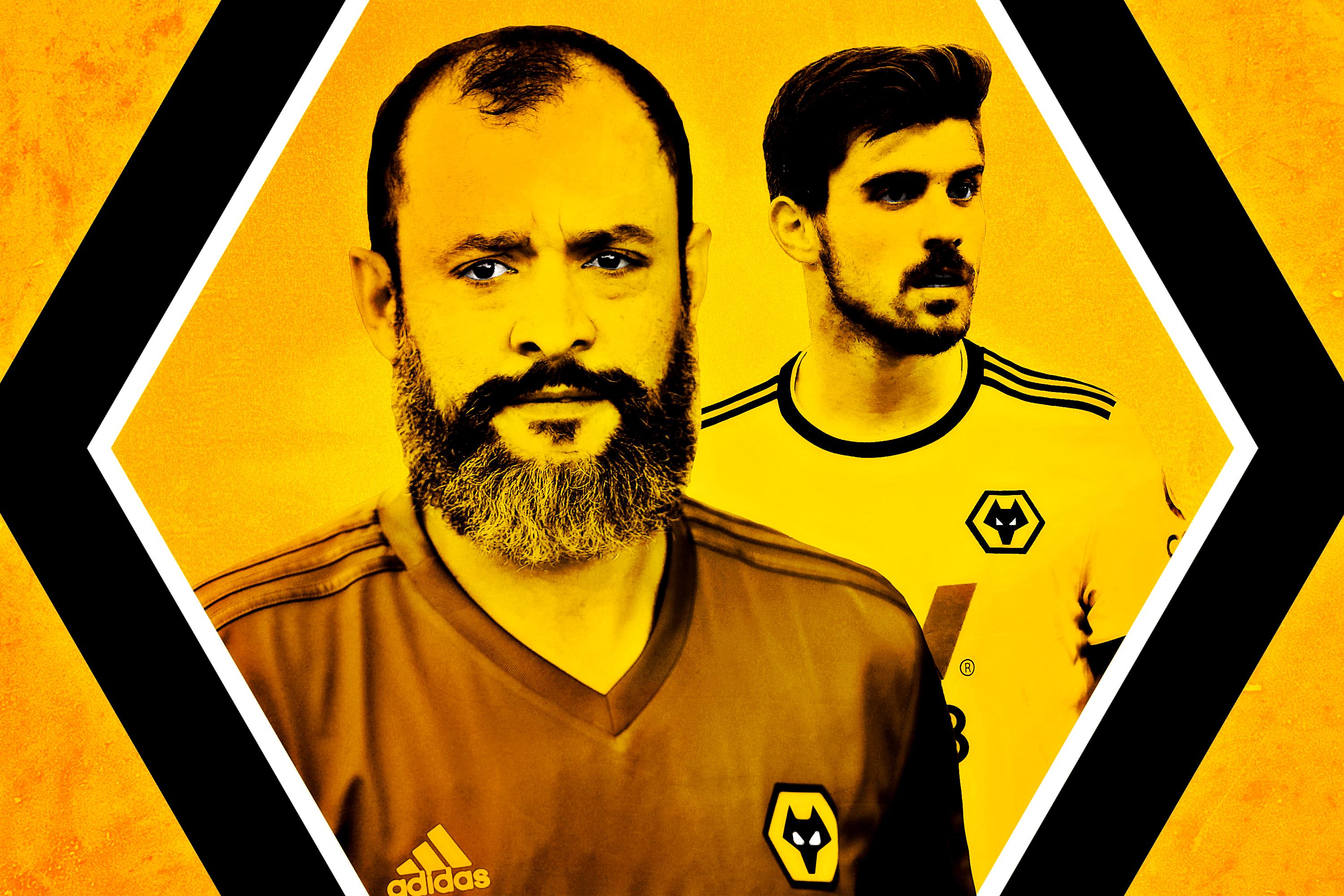
Last October, in the waning minutes of a Carabao Cup quarterfinal match between Pep Guardiola’s record-breaking Manchester City and second-tier Wolverhampton Wanderers, the underdogs had a golden opportunity to steal a miraculous win. With the score at 0-0, a through ball to Wolves forward Bright Enobakhare left the 19-year-old sprinting from the midfield circle all the way to Claudio Bravo’s goal—Raheem Sterling gave chase, but even he couldn’t make up ground fast enough. If Enobakhare could beat the Chilean keeper, he’d almost assuredly secure a famous upset.
Unfortunately for Wolves fans, Enobakhare’s low shot ricocheted off Bravo’s legs, and the opportunity passed as quickly as it developed. Wolves wouldn’t get another quality chance. However, despite eventually losing to City on penalties, Wolves could hold their heads high: They were the first team to shut out Manchester City last season, and did so for 120 minutes.
We will now see City and Wolves match up twice this season in the Premier League, after the latter earned promotion by thoroughly dominating the English League Championship in 2017-18. And unlike newly promoted teams of seasons past, Wolves already enter the season pegged as a formidable foe: Oddsmakers are projecting them as a top-10 club this season. Wolves are in the early stages of building a framework that could elevate the club into the upper echelons of the sport.
As recently as 2014, Wolves were toiling in the third tier of English soccer. A storied club—founded in 1877, they were one of the 12 founding members of the English Football League and experienced glory days throughout the late ’50s and early ’60s—Wolves had failed to find success in the Premier League era. The club’s beacon of hope was a foreign conglomerate: The Chinese investment group Fosun International bought Wolves in July 2016. There’s an obvious historical precedent of foreign owners opening a larger checkbook and bringing a team on-pitch fortunes in short order: We saw it in the early aughts with Roman Abramovich and Chelsea, and most recently with Manchester City once they were acquired by Abu Dhabi United Group in 2009.
The aesthetics of Wolves’ European takeover are similar to those of City, but the actual structure is different in key ways that have drawn some skepticism. If you look up and down the Wolves roster, you will see a plethora of premium Portuguese players, like winger Hélder Costa and midfielder Rúben Neves and the newly acquired goalkeeper Rui Patrício and midfielder João Moutinho. The team’s coach since 2017, Nuno Espírito Santo, formerly of Valencia and Porto, is also Portuguese. What all these Portuguese players and their manager have in common is an agent, Jorge Mendes. Mendes is a soccer equivalent to Scott Boras: He’s one of the biggest agents in the sport, whose clientele also includes Manchester United coach José Mourinho and Cristiano Ronaldo. Mendes is an “adviser” for Wolves, a loose title which has until now skirted any legal issues: Agents aren’t allowed to have actual positions with a soccer club. But Mendes’s “advising” has seen several of his clients leave bigger teams to join the club—even when they were in the second tier. By the end of the 2017-18 season, “almost half” of Wolves’ roster had alleged ties to Mendes’s company, Gestifute, which has taken investments from Fosun chairman Guo Guangchang.
Of course, it’s one thing to bulk up finances and sign big-name players—the product on the pitch still needs to meet such ambitions. And once Santo took over in 2017—following Walter Zenga, interim manager Rob Edwards, and Paul Lambert since Fosun’s 2016 takeover—Wolves have been, well, feasting. The 2017-18 Championship season was as dominant for Wolves as it was for City in the EPL. Per Opta, they created 89 “big chances,” which was 24 more than Aston Villa, their closest challengers. The team also conceded fewer than 10 shots per game—another high mark in the English second tier. The type of football Wolves played was attractive and entertaining—watch this space at the end of the season—all the way down to the manager’s charisma. When the team faced second-place Cardiff City late in the season, Santo jubilantly celebrated on the sidelines after Wolves’ late winner, which irked Cardiff manager Neil Warnock. “[Santo’s] got to learn that in British football you have manners, a bit of class when you’ve won a game,” Warnock said after the game. Santo’s previous credentials, including stints for a Champions League–chasing La Liga side and one of Portugal’s two most dominant teams, may have been outsized for England’s second tier. But the Portuguese manager’s ethos will fit right in with Pep Guardiola, Jürgen Klopp, Maurizio Sarri, and the other erudite European managers in the EPL. Warnock, whose Cardiff side was also promoted, will have to get used to such comportment for at least another season.
The way that Santo’s Wolves line up is particularly tricky to break down: They play a 3-4-3 that is adaptable depending on the opposition. They are more possession-heavy against lesser sides—with the wing backs coming forward, the team often morphs into a 3-2-5. However, Wolves can also play on the counter just as effectively by shifting into a 5-4-1 and absorbing pressure. They scored more goals off counters than any other Championship team last season. It’s how, even with a lineup comprised mostly of backups, Wolves thwarted City over 120 minutes in the Carabao quarterfinals.
At the heart of the team’s success was Neves, orchestrating through the midfield. The Portuguese talisman completed 362 long balls in the Championship last year, 71 more than any other outfield player. Also, he did this against Derby County, which should be illegal:
Wolves have spent their summer transfer window bolstering the squad with 11 signings, including Patrício, Moutinho, and midfielder Leander Dendoncker. The team’s biggest acquisition was the club-record signing of Middlesbrough winger Adama Traoré for £18 million. The Spaniard is a dribbling machine—motion to call him Dribble Daddy?—and completed 10 dribbles per 90 minutes in the Championship last season.
Wolves—along with Fulham, who became the first newly promoted side to spend upward of £100 million in the summer transfer window—are poised to be formidable from the get-go. But that doesn’t guarantee Wolves will soon find themselves competing against Europe’s elite. Not all foreign ownerships have produced silverware like Manchester City or Chelsea have: AC Milan’s Chinese ownership might be unable to meet the team’s financial needs, and Portsmouth were an extreme example of foreign ownership derailing a once-promising EPL club and banishing it to the fringes of lower English divisions with mountains of debt. However, club chairman Jeff Shi has maintained that Fosun International and the club are looking at the long term. “It’s a 10-year plan,” Shi said in March. “We’re building not a house but a manor!”
In the short term, however, Wolves should be a respectable EPL force, with a talented coach and a Portuguese-influenced roster that’s teeming with potential. That finishing in the top half of the table in their first season after promotion is a reasonable goal is impressive in and of itself. Nobody—not even Kanye—needs to save these Wolves. At least, not for the time being.

